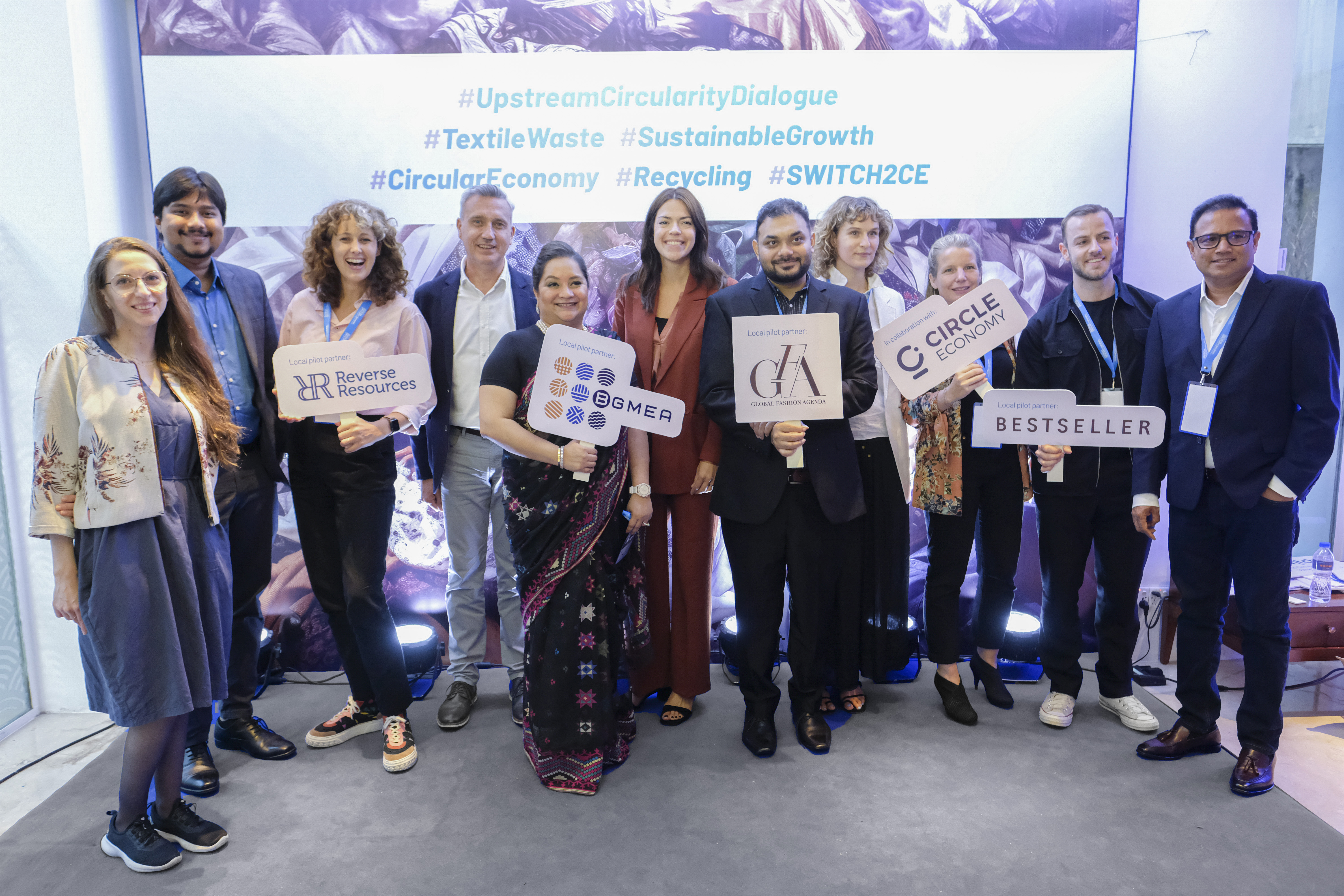For status and progress on all Fashion FWD goals, please see our sustainability reporting.
Within our cotton supply, we will source 30% from organic or in-conversion cotton.
We will source 50% of our polyester from recycled polyester or other certified and/or branded alternatives.
100% of our wool will be sourced in line with industry best practice, such as the Responsible Wool Standard (RWS).
We will facilitate the development of certified and/or branded fibres and materials at market scale through innovation and industry collaborations.
The volume of samples we produce will be significantly reduced by investing in digital solutions and collaborating closely with our key suppliers.
We will have tested and implemented circular business models in selected key markets with relevant partners.
We will drive forward post-consumer waste and circular infrastructure solutions, engaging in collaborative initiatives to turn waste into valuable resources
All consumer-facing packaging will be 100% reusable, recyclable or compostable.
We will have phased out single use virgin plastic wherever possible
Fibres and materials are essential to fashion. Year round we create accessories and garments made from a range of natural and man-made fibres that can be cut and sewn into clothing.
Our products can be made both with conventional as well as branded and certified materials. We're increasing the use of certified and branded materials which can be either organic, in-conversion, recycled and/or subject to a third-party licensing agreement or certification.
We need innovation to meet future requirements and reach the ambitions of the EU Strategy for Sustainable and Circular Textiles. That’s why we’re investigating, testing and scaling early-stage fibre developments.
Innovation in textiles is strategically important for BESTSELLER and through Invest FWD and our involvement in e.g. Fashion for Good, we’re exploring innovative material solutions and help bring them to scale. This also includes investing in innovative companies and start-ups to help them grow their potential.
A recent investment (August 2025) is in the German cleantech company matterr, which has developed an innovative technology for the chemical recycling of polyester from hard-to-recycle worn-out textiles and packaging waste.
In total, through Invest FWD, BESTSELLER has invested DKK 240 million in innovative companies that aim to create the materials of the future and contribute to breakthroughs in the industry. Click to read more about our investments through Invest FWD.
Cotton is one of our most important raw materials.
However, it also has a significant impact on the planet and people engaged depending on the farming method. For this reason, we have committed to source 100 percent certified and branded cotton by 2022.
We’re moving away from how we’ve been using plastic and paper-based packaging. Every year, we use a significant amount of plastic packaging; for example, for our polybags and transport purposes.
Plastics for polybags and paper-based shipping boxes are where our biggest packaging consumption lies. That’s why we have implemented our policies for Paper-Based Packaging and Plastic Packaging.
Learn about our efforts when it comes to reusable, recycled or compostable packaging.

We're dedicated to tackle textile waste.

Using technology to know where our materials come from.

We're focused on recyclability of materials.







